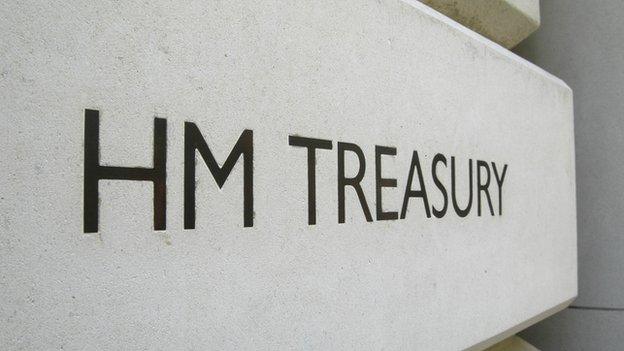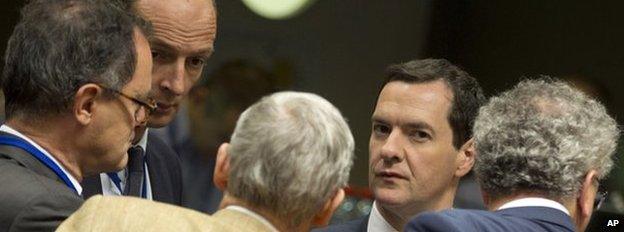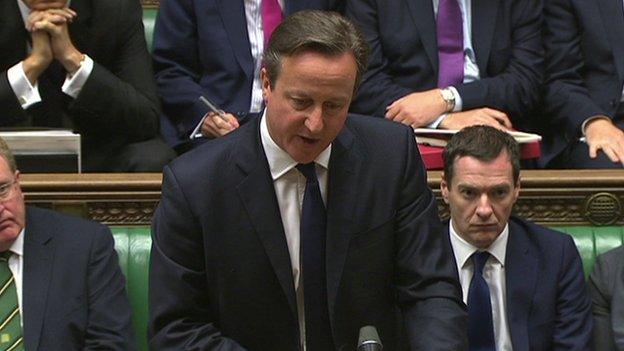UK 'strikes deal' over Greek bailout
- Published

The Treasury said the deal would also protect other countries outside the eurozone
A legally binding agreement has been struck to protect UK taxpayers' money from the impact of the Greek bailout, the Treasury says.
Chancellor George Osborne said the "impregnable ring fence" had followed "tough talks" and would also apply to future eurozone rescue packages.
Other non-eurozone countries would also be protected, the Treasury said.
The announcement follows a row over the possible use of an EU-wide contingency fund to make bridging loans to Greece.
It centred on the use of the European Financial Stability Mechanism, an emergency fund set up to support any of the 28 EU member states in financial difficulty.
'Significant victory'
Prime Minister David Cameron argued that a deal struck in 2010 should protect the UK from future eurozone bailouts.
But EU officials said the European Commission had legal authority to use it for short-term loans that could be given to Greece as part of the wider 86bn-euro (£61bn) rescue package agreed on Sunday.
Setting out the new deal, a Treasury spokesman said EU law would be changed so a cash fund, held by the European Central Bank, would cover any liabilities that would have fallen to the UK or other non-eurozone countries like Denmark and the Czech Republic.
The deal had the support of the European Commission and the majority of other EU members and would take effect in 24 hours' time, he said.
The spokesman said the deal established the principle of different rules for those outside the eurozone.

Analysis by Ben Wright, BBC political correspondent

George Osborne objected to the use of EU funds ahead of a meeting with EU finance ministers
Defusing this political grenade has been keeping ministers and officials busy and today they reached a deal. The European Central Bank will hold a new cash guarantee that ensures countries like Britain that do not have the euro cannot lose any money.
And importantly, EU law will be changed to ensure non-eurozone countries will never have to contribute to a Euro zone bailout.
George Osborne said this was a "significant victory" - and certainly protecting the interests of "euro outs" will be a big part of the government's renegotiation with Brussels.
This may indicate a willingness in Brussels to help David Cameron secure changes to EU law - something many of his MPs say is essential.

Mr Osborne said: "We have today secured a significant victory and strengthened the protections for the UK in the latest Greek bailout and any future bailouts of Eurozone countries.
"I made clear to my European counterparts that this was an absolute red line for Britain."
Mr Osborne added: "These have been tough talks, but the agreement announced this evening means an impregnable ring fence around British taxpayers' money, which will not be at risk in any way in this emergency financing for Greece."
The chancellor said he expected the principle of treating non-eurozone countries differently to be "acknowledged" when the UK attempted to renegotiate its relationship with the EU ahead of the referendum on its membership, promised by 2017.
- Published15 July 2015

- Published15 July 2015